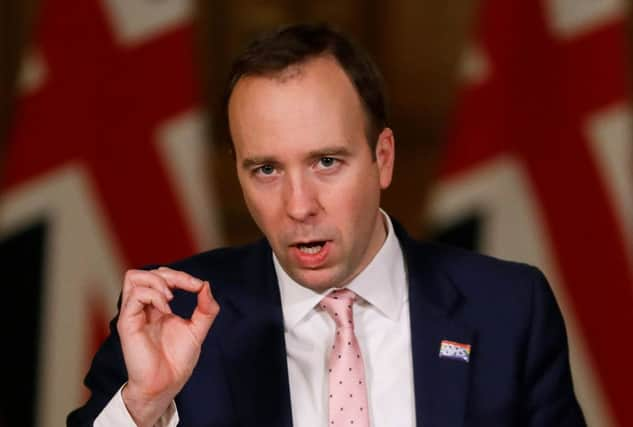These four key criteria must be met before lockdown can be lifted in England


Health Secretary Matt Hancock has outlined the four key criteria that must be met in order for the current national lockdown in England to be lifted.
Mr Hancock suggested that the latest restrictions may be needed until at least March as he set out the conditions required to relax the stay-at-home order.
Third lockdown will be the last
Advertisement
Advertisement
While Covid-19 infection rates are soaring across the country, the Health Secretary has vowed that this third national lockdown will be the last.
The assurance comes thanks to the rollout of the mass vaccination programme which is now underway in England, with the Oxford jab beginning distribution at GPs on Thursday (7 January).
Speaking to the Health and Social Care Committee, Mr Hancock explained that lifting lockdown does not entirely rest on the number of people being hospitalised with coronavirus.
However, he warned that the emergence on a new variant could threaten to push the date England’s restrictions are eased back even further.
Advertisement
Advertisement
He told MPs: “We’ve set out the conditions that we’ll look at for the relaxation of restrictions.
“Those are, that there isn’t another major new variant that is causing difficulties.
“The vaccination programme is working and the number of hospitalisations and deaths is coming down.”
Four key criteria
Mr Hancock said there were no “fixed thresholds” for any of the key criteria, but stressed that ministers are always assessing what “direction” deaths and hospitalisations are travelling.
The four criteria to lift lockdown restrictions include:
- No more major new variants of Covid-19
- Hospitalisations must fall
- Daily death rates must fall
- The vaccination programme needs to work
Advertisement
Advertisement
The UK government has vowed to vaccinate 13 million people in the top four priority groups by mid-February - with a goal of two million per week - in the hopes the mass rollout will allow current lockdown restrictions to be eased.
However, the Prime Minister has warned that lockdown would end “not with a bang, but with a slow unravelling”.
Around 1.3 million people have already received either the Pfizer/BioNTech or Oxford/AstraZeneca jab and ministers have decided, in a move queried by the World Health Organisation (WHO), to administer the first jab to as many priority patients as possible by delaying a second shot. The second jab will now be given up to 12 weeks later to prevent current supplies from being held back.
Mr Hancock said that as more people are vaccinated, the number of deaths would undoubtedly fall, but the number of hospitalisations would take longer.
Advertisement
Advertisement
He also warned that people may need to have another vaccine in as little as six months, as the data is not yet clear on how long the jab provides immunity. "It might be every six months or every year," he said.